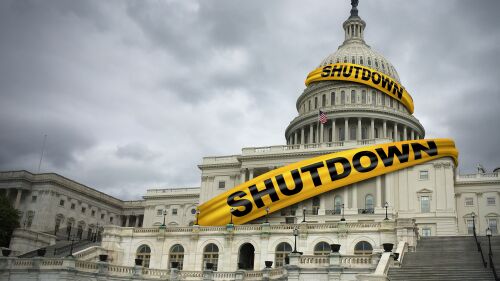News
Eli Lilly and Johnson & Johnson are joining fellow Big Pharma peers in upping their investment in AI, with Lilly looking to create the industry’s ‘most powerful supercomputer’ and J&J building a virtual operating room.
FEATURED STORIES
As industry leaders gather at the annual event in Phoenix, the cell and gene therapy space remains in a state of flux, with M&A activity and regulatory support signaling momentum while commercialization challenges continue to hinder broader investor interest.
Smarter design through targeted delivery and human-relevant testing can save the industry from costly safety failures.
While Bruton’s tyrosine kinase inhibitors are often hailed as the next big breakthrough in multiple sclerosis, Immunic Therapeutics and others are leveraging neuroprotective targets and remyelination to keep the disease at bay.
Job Trends
While Houston isn’t yet on the same level as major life sciences hubs, it has plenty to offer and room to grow, according to CNS Pharmaceuticals, RadioMedix and Greater Houston Partnership executives.
FROM OUR EDITORS
Read our takes on the biggest stories happening in the industry.
Lilly CEO Dave Ricks in Wednesday’s third-quarter earnings call acknowledged that the company is at the mercy of wholesaler stocking decisions.
THE LATEST
Pfizer, Merck, AstraZeneca and Bristol Myers Squibb were among the many biopharmas showing off novel cancer modalities at ESMO, with antibody-drug conjugates, bispecific antibodies and kinase inhibitors demonstrating encouraging efficacy and safety for various cancers.
Two patients experienced grade 3 liver enzyme elevations that were deemed related to Terns’ investigational obesity pill TERN-601.
For $1.2 billion upfront and up to $10.2 billion in milestones, Takeda will gain access to a bispecific antibody fusion protein targeting both the PD-1 and IL-2 pathways, among other assets.
This represents Alector’s second failed neurodegenerative asset in a year, after an AbbVie-partnered asset missed in Alzheimer’s last November. On latozinemab for frontotemporal dementia, Alector was working with GSK, which fronted $700 million in 2021 to collaborate on two programs.
M&A is back, the S&P XBI is rising again, a biotech pulled off an IPO and positive data is pulling in investors again. This may just be the industry’s new normal.
Novo Nordisk’s leadership gets another shake-up as President Trump promises to significantly slash prices for its GLP-1 drugs; Summit/Akeso, Exelixis and more present new data at ESMO 2025; Replimune pops as FDA accepts resubmitted BLA; FDA names first winners of Commissioner’s National Priority Voucher program; and more.
Employees rarely leave companies for one reason alone. In this column, Kaye/Bassman’s Michael Pietrack shares a framework that helps leaders identify when their team members are thinking about heading for the exit—and how to address it.
AI is changing the nature of leadership in biopharma. Here’s how executives can not only adapt, but lead the way.
The company cut back in areas while investing in internal and external opportunities to offset the loss of exclusivity on a product that until recently accounted for 20% of innovative medicine sales.
Seven Novo Nordisk board members have resigned. The new board headed by former Novo Nordisk CEO Lars Rebien Sørensen will align behind the new CEO’s massive restructuring plan.






















